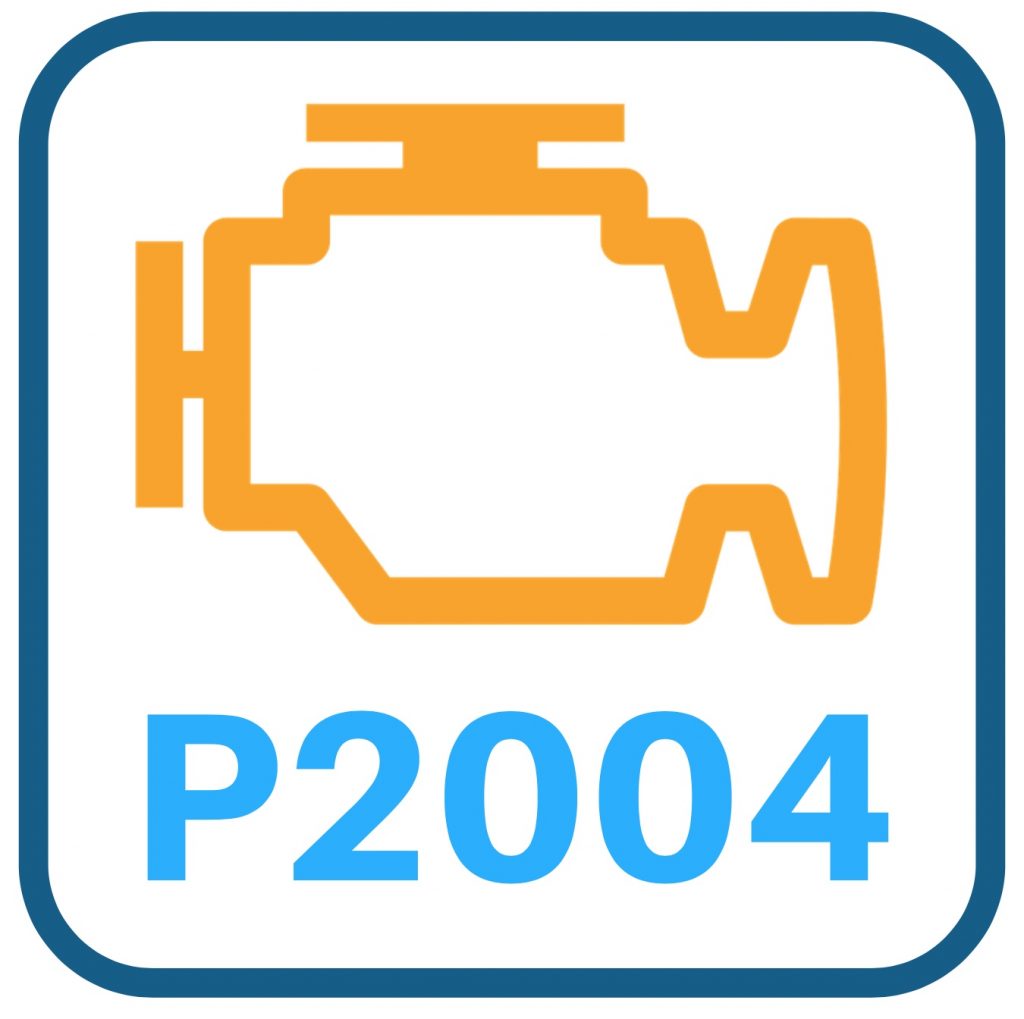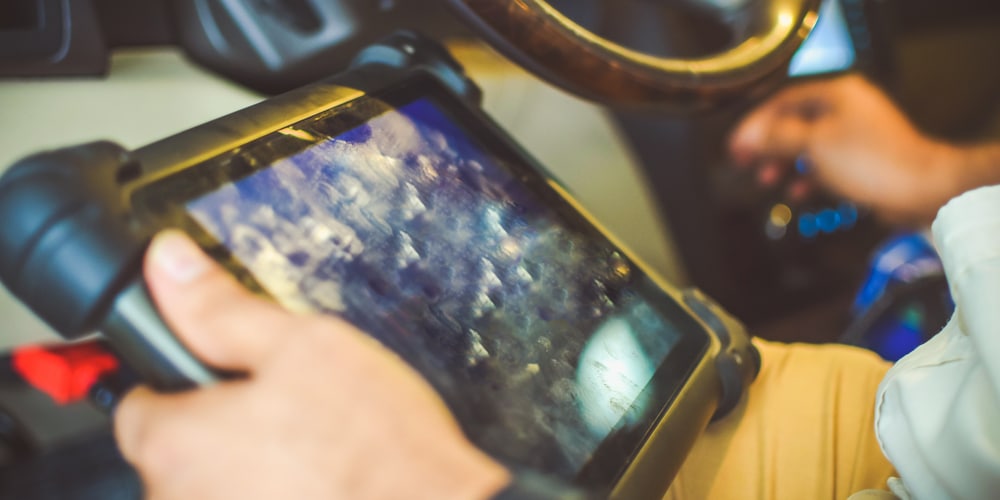P2004 is a somewhat rare diagnostic trouble code. It indicates that the intake manifold runner control (IMRC) is stuck open. IMRC is a relatively new technology, which means two things:
- This code is typically only seen on newer vehicles.
- It’s only going to get more popular as IMRC technology is used on more and more gas engines.
P2004 is a general code, which means that it has the same meaning for all vehicles. Although, it does seem to be most common in Ford, Chrysler, and Nissan-made vehicles.
P2004 Definition: IMRC Control – Stuck Open (Bank 1)

There are three parts to the definition P2004. Understanding each of them will help you diagnose your vehicle and clear the code a lot faster.
IMRC Control
The throttle body allows air into the intake manifold. Once the air makes its way through the intake, the IMRC fine-tunes the airflow for each particular intake runner. This action creates a swirling effect that allows for more efficient combustion.
The IMRC is controlled by the vehicle’s PCM. It can use either engine vacuum or an electronic motor to operate the system, though the vacuum-operated version does seem to be more prevalent.
Stuck Open
The IMRC is stuck open and can no longer fine-tune the air. This may cause some unwanted effects (covered below), particularly at lower RPM levels.
Bank 1
Each cylinder head is considered to be a “Bank”. Bank 1 is the cylinder head with the first cylinder. You don’t need to worry about this at all with an inline engine, as there is only one bank of cylinders.
On bank 1, the code is P2004. With bank 2, the code would be P2005.
P2004 Symptoms
You will usually notice symptoms when your vehicle has P2004. Usually, it’ll feel like a misfire or a rough running engine.
Here are the most common ones:
- Bad low RPM performance
- Reduced power across the board
- Check engine light. You may get a misfire or air/fuel mixture-related code. If you do, address P2004 first. It may very well clear the other codes.
- Reduced fuel economy
P2004 Causes + Diagnosis

Here are the most common causes of P2004.
Before doing anything, check for codes related to the MAF and MAP sensors. If one of these sensors is bad, it can cause issues with the IMRC and throw P2004.
1. IMRC Wiring (Likely)
The wiring harness going to the IMRC, as well as the pigtail that connects to it, can cause P2004. Check the harness to make sure that it hasn’t been rubbed against anything or burnt. If it has, you’re going to need to replace or repair the wiring harness.
Make sure that the harness has the proper voltage (or voltage going to it at all). Verify that the ground is good.
2. Vacuum Leak (Vacuum Operated IMRC Only)
Most IMRC systems are vacuum controlled. Check the vacuum lines going to/from it for a leak. If there is a leak, you’ll need to replace the lines.
If the lines look worn out, brittle, or dry rotted that could be the problem right there. You can use a vacuum pump to verify that the IMRC can still operate the butterflies.
3. Intake Manifold and Linkage (Somewhat Likely)
With the IMRC disconnected, you can operate the linkage that it controls by hand. It shouldn’t give any resistance in its movement. If it does, then it’s binding in the intake. This can happen for a few reasons:
- Carbon build-up
- Intake manifold improperly torqued
On a vacuum-operated IMRC, you can control the butterfly valves with a vacuum pump (like a Mityvac).
If they open and close with no resistance, you can rule out any issue with the intake. Which either leaves the IMRC actuator or something causing it not to command open or closed.
4. Bad IMRC (Very Likely)
Replacing the IMRC actuator is the most common fix for P2004. In the previous step, you checked all of the wiring going to it and made sure that it was good. So, at this point, it’s likely to be the IMRC causing P2004.
Conclusion
A vehicle with P2004 will often run noticeably rougher, but it shouldn’t break down. Still, you should fix the problem. Leaving it alone for too long can cause other issues.
